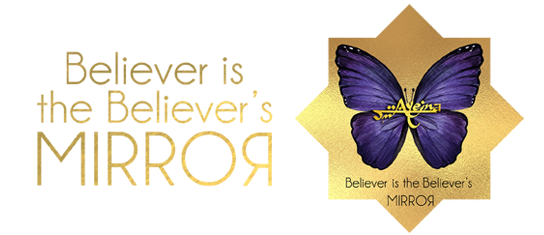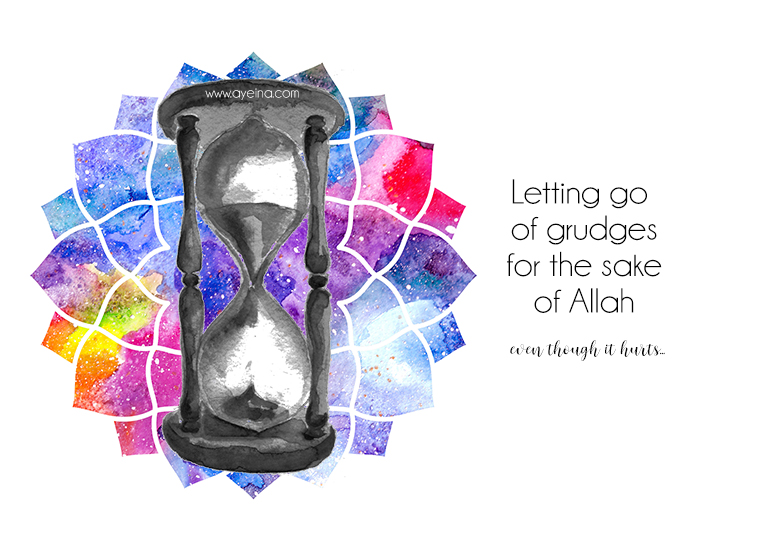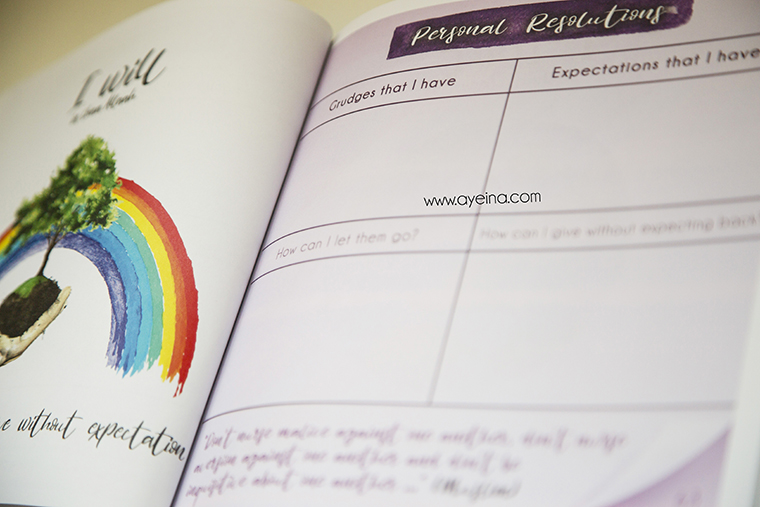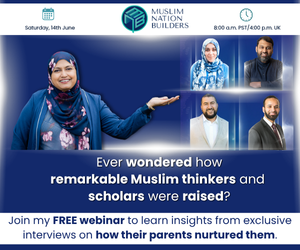by Saadia Mirza (in collaboration with Team AYEINA)
Isn’t it hard for everyone of us to forgive the ones who hurt us , betray us, the ones who break our hearts? We are often hurt by the people who are closest to us so it’s natural for the wound to go deeper than the hurt you may endure through a stranger. Largely because you don’t expect hurt to come from their direction.
What is forgiveness?
Forgiveness is the intentional and voluntary process by which a victim undergoes a change in feelings and attitude regarding an offense, lets go of negative emotions such as vengefulness, with an increased ability to wish the offender well.
Forgiveness is different from condoning (failing to see the action as wrong and in need of forgiveness),
excusing (not holding the offender as responsible for the action),
forgetting (removing awareness of the offense from consciousness),
pardoning (granted for an acknowledged offense by a representative of society, such as a judge),
and reconciliation (restoration of a relationship).
Forgiveness is given to someone who does NOT deserve it. and you CHOOSE to forgive instead of taking the revenge. You COULD take revenge but you chose to become a bigger person and let go…
Forgiveness doesn’t mean you shouldn’t have any more feelings about the situation.
Forgiveness doesn’t mean there is nothing further to work out in the relationship or that everything is okay now. Resolution might still be needed.
Forgiveness doesn’t mean you should forget the incident ever happened.
And sometimes, forgiveness doesn’t mean you have to continue to include the person in your life…
Forgiveness is basically for YOU. To help you move on…
Forms of Forgiveness
You could either let go of revenge but never forget OR you could forgive with such conviction that you forget it eventually as well after the time has healed your wounds.
In Qur’an, there are two phrases used for forgiveness, coming from root words:
1) غ ف ر
The meaning of the Arabic word “ghafara” is to cover, to hide and from it comes the meaning “to excuse,” “to pardon,” “to remit” and “to forgive.”
…and let them pardon and overlook. Would you not like that Allah should forgive you?… [Qur’an 24:22]
2) ع ف و
Al-‘Afuw is another part of forgiveness. This name is mentioned in the Quran five times. Literally the word ‘Afw means “to release,” “to heal”, as well as “to restore, to remit.”
Who spend during ease and hardship and who restrain anger and who pardon the people – and Allah loves the doers of good [Qur’an 03:134]
Steps to Forgive Even When It Feels Impossible
A grudge usually indicates a dramatic mismatch between our expectations of others and the reality; an acknowledgment that someone disappointed us deeply and, often, doesn’t even realize it. When someone apologizes to us, we also feel validated and justified for being upset. The apologizer is taking responsibility at some level for the result of their actions, intended or not. And when that happens, our insides relax; we don’t have to fight anymore to prove that our experience is valid, that we are entitled to our hurt, and that it matters. When hurt by another, our bodies are hardwired to need an apology to relax, move forward, and let go of the hurt. But sometimes when we can’t get the I’m sorry we think we need, we have to learn to relax on our own, without the other’s help. Trusting and knowing that our pain is deserving of kindness — because it is — and that our truth is justified and valid — because it’s our truth — is the beginning of our independent healing process.
From a Psychology Perspective:
If you decide you are willing to forgive (because your willingness to move on matters), try following these four steps to forgive even when it feels absolutely impossible that you’d be able to move past all the hurt you endured:
1) Recap
Run a recap of that incident in your mind. Accept that it happened. In order to forgive, you need to acknowledge the reality of what occurred and how you were affected.
2) Acknowledge
Acknowledge the growth you experienced as a result of what happened. What did it make you learn about yourself, or about your needs and boundaries? Not only did you survive the incident, perhaps you grew from it. Begin to picture your life without holding on to that anger and hurt. Would it feel lighter? Would you feel more content within? The health of your heart and mind should belong to you. If you give it in someone else’s hand, what are your chances of peaceful survival?
3) Share your feelings
A grudge can form when an issue isn’t fully confronted. Without being judgmental about yourself or another, clarify your feelings on the situation. Then, decide if this is something you will work on in your own heart or by contacting the other person involved. Only when you are ready, communicate with the other person about the issue. The path to freedom from a grudge is not so much through forgiveness of the “other” (although this can be helpful), but rather through loving our own self or bringing in a loving presence of someone else into the suffering that crystallized into the grudge. If it feels like too much to go directly into the pain of a grudge, we can move toward it with the help of someone wise we trust. The idea is not to re-traumatize ourselves by diving into the original pain but rather to attend to it with the compassion that we didn’t receive. Although our heart contains both our pain and the elixir for our pain, but sometimes the pain can be too difficult to deal on our own and an outside help can be needed.
4) See the other side of the coin
To say I’m sorry is to say that I did something wrong. For some people, admitting that they did something wrong is not possible, even when they know it was wrong, and even when they feel bad about doing it. This never-sorry person can actually be sorry and still refuse to utter the words that would both acknowledge their remorse and right their wrong. To be able to admit that we’ve done something wrong requires a certain level of self-esteem or ego strength. People who are deeply insecure can find it challenging to say I’m sorry in part because they think that a single mistake has the power to obliterate their self-worth. The idea that they could make a mistake and still be a valuable and good person is unthinkable for someone whose self-esteem is severely lacking. And then there are those who refuse to say I’m sorry because they lack empathy. They believe that an apology is only appropriate for situations in which they purposefully caused you harm. There’s no sorry deserved or indicated when the pain you felt was not intentionally caused, and thus not technically their fault.
So think about the other person. Where is he or she coming from? He or she is flawed because all human beings are! When you were hurt, the other person was trying to have a need met. What do you think this need was and why did the person go about it in such a hurtful way?
From an Islamic Perspective:
Holding a grudge is like drinking poison yourself and hoping the other person gets affected by it. It feels like carrying a heavy burden of negativity & feelings of resentment. The problem with grudges, besides the fact that they are a drag to carry around is that they don’t serve the purpose that they are there to serve. They don’t make us feel better or heal our hurt. At the end of the day, we end up as proud owners of our grudges but still without the experience of comfort that we ultimately crave, that we have craved since the original wounding. We turn our grudge into an object and hold it out at arm’s length as a proof of what we have suffered, a way to remind others and ourselves of our pain and deserving-ness. But in fact our grudge is disconnected from our own heart; while born out of our pain, it becomes a construction of the mind, a story of what happened to us. Our grudge morphs into a boulder that blocks the light of kindness from reaching our heart, and thus is an obstacle to true healing. Sadly, in its effort to garner us empathy, our grudge ends up depriving us of the very empathy that we need to release it. So a change in perspective can really help straighten things for you in shaa Allah…
1) Forgive people to gain Allah’s forgiveness:
Here Is a Big Question. Ask Yourself. Don’t You want forgiveness from Allah? If we seek forgiveness from Allah (And we all need Allah’s mercy), let us rush into forgiving people. We only give forgiveness that is finite and what Allah can give us is infinite. Allah’s mercy is infinite. His forgiveness is infinite. SubhaanAllah. What a Beautiful Exchange! Either our anger weighs more or our love for forgiveness of Allah weighs more…
“Show mercy and you will be shown mercy. Forgive and Allah will forgive you…” [Al-Adab Al-Mufrad 380]
The incident of slander against Aisha (RA) is one of the example of this fact. When the Mother of Believers was accused and there were rumors spreading about her in the city – one of the Sahaba who was Abu Bakr (RA)’s relative (Mistah Bin Uthatha) who Abu Bakr (RA) was also supporting financially, got indulged in spreading the false propaganda created by Munafiqeen. When Aisha (RA)’s father – Abu Bakr (RA) came to know about that, he swore that he wouldn’t help him anymore. Upon this, Surah Nur Verse 22 was revealed. After this, Abu Bakr (RA) resumed helping Mistah.
2) Qalbin saleem leads to Jannah
I know it’s easier said than done. Qalbin Saleem means a sound heart. A heart free of burdens of dunya. Our hearts are made for Allah. They aren’t meant to hold so much hurt of this dunya. So daily cleansing can be an uplifting experience.
Messenger of Allah (ﷺ) said: The gates of Paradise will be opened on Mondays and on Thursdays, and every servant who associates nothing with Allah will be forgiven, except for the man who has a grudge against his brother. it will be said: Delay these two until they are reconciled; delay these two until they are reconciled. It was related by Muslim (also by Malik and Abu Dawud).
3) Follow the Sunnah
We see forgiveness in the character of Prophet Muhammad (ﷺ) and in each prophet who went before him. From Yusuf (AS) forgiving his brothers after living a life of slavery and imprisonment when his brothers threw him into the well – to Prophet (ﷺ) forgiving the murderers of his beloved uncle and supporter. From Ibrahim (AS) forgiving his father who was one of the people to throw him into fire – to Prophet (ﷺ) making dua for the people of Taif who pelted him with rocks until he bled…
The Prophet (ﷺ) said, “Do not harbor grudge against one another, nor jealousy, nor enmity; and do not show your backs to one another; and become as fellow brothers and slaves of Allah. It is not lawful for a Muslim to avoid speaking with his brother beyond three days.” [Bukhari and Muslim]
4) Consider life a constant test
Let’s not get caught up in the illusion of pain given by the people that you fail to see the bigger picture. By forgiving, you are accepting the reality of what happened and finding a way to live in a state of resolution with it. This can be a gradual process and for some, a journey of a lifetime…This life is a test. Allah is going to test us through other people too.
“…And We have made some of you as trial for others – will you have patience? And ever is your Lord, Seeing.” [Qur’an – 25:20]
How to forgive (based on personal experiences of Muslims around the world)
Since many of you shared beautiful experiences, here is a list of summary of the beneficial comments we received on social media on this topic:
1) “Holding onto a grudge is within our control. And having past unresolved issues is out of our control. If we hold onto anger, hate and ill feelings then we are holding a grudge. If we try to forgive and make a conscious effort yet are still disturbed – is when you have no control over your emotions. And that means you have unresolved previous issues. My grief turned into fury after 4 years of hurt and my fury gradually embraced hate. Hate solidified my stance of NEVER forgiving. Through hating the person who hurt me so deeply, I wasted energy which left me exhausted. In a way, I was that person’s hostage. 4 years later, I attended Wael Ibrahim’s lecture on forgiveness. He told us the STRONGEST and BRAVEST of all virtues is forgiveness. After his lecture, I asked him a question and briefly described my situation to him. Very patiently, he encouraged me to go on and take the step with my heart to consider forgiveness. And to finally forgive. It had been too long. I took a deep breathe, and there I forgave that person. I felt like crying. All those years I thought I had an advantage by holding a grudge. For the first time after forgiving that person, I knew I was doing something for myself. For my akhirah.” (by @fatima.zahra.21)
2) “Grudges destroy you. Expectations ruin you. Forgiveness heals you. It is a path that’s fraught with tears and thorns. It’s not easy. And with overthinking and negativity, honestly we are the ones that most cause this misery on ourselves. Forgiveness – it’s the only thing that reclaims your heart once you put your fears on the line. And I assure you this, the only One who will appreciate your struggle and be waiting for you at the finish line will be Allah.” (by @bint_tariq)
3) Forgiveness is a long process. You may need to do it again and again. Forgiveness doesn’t mean you have to let them back in. Forgiveness means not wishing them harm, although bitterness may exist (by @nobleblessings)
4) Whenever I felt hurt and helplessness I turned to read the Quran, and there I’d come across a name of Allah, that person also had the same name. I turned to the Quran to forget about it all n find comfort and then coming across that name rekindled all the hurt n wrong they did. For a long time I was very perturbed by this. But Alhamdulillah, I’m much better now. I could mention a couple more crippling n hurtful times but I am reeling from them . It’s taught me a lot about forgiveness. Forgiveness is a very slow n personal process, sometimes you have to exercise it everyday and knw that you’re doing this only for the sake of Allah. I’m not sure how to explain how forgiving others is to make what they did to you ok, it doesn’t. It only helps you move forward, when you forgive n take a step forward it is amazing hoe Allah rectifies your affairs and paves an easy path for you to move forward. Allah knows what is best for us and if this his what he asks us to do then we must believe it (forgiveness) is tonnes better that any other path we may consider. (by @inktangle)
Have you ever gone through a difficult experience like this in life? How did you manage to forgive the other person? What motivated you to move on from all the hurt? How did you manage it all?
————————————————————————————————————————————————————————————–
Co-Author’s Bio: Saadia Mirza is from Karachi, Pakistan who is currently an Arabic language student at Quran Academy. She’s a writer from every part of her heart who loves art, painting, nature & the One Who has created it.








❤️🌸
Amazing,💕
I was thinking how you forgive a person knowing they stabbed you at heart and then work with them in the same sphere. It seems like an impossible task. But Allah wants us to do the impossible. That validation that you don’t get, it makes it harder to see that person and make a conversation like nothing happened. What would you suggest to someone who tried to apologize but in the process had to listen to rude, cold words? How do we move on when words cut through us like dagger? How do we move on when we are misunderstood? I am telling to myself that at the end nobody understands you except Allah, but still, we invest in relationships, and then we are stepped upon, without any consideration. Anyway sorry for the rant. At least your words made me calm for a brief period. Thank you.
@Rahnuma I am glad that at least this article helped you little bit. One thing I have learned from my own experience is that obviously we are living in a world of Peoples so there is always going to be someone whose words will hurt us,we will definitely be going to suffer because of someone.So by realizing this and accepting this we naturally lower our expectations from people.This realization make us more forgiving because we can not hold on to much hurt in our life given by people because it will consume us and leave us with doing nothing. We should take our power from others and not let others dictate our self worth or anything. How other people treat us is the reflection of who they are, not who you are. So if they hurt you, it may be they are hurting too so they inflicted their pain upon you by hurting you. Normal people don’t drag others with their words or make them suffer because of them. People who treat themselves with Love, treat others with Love and kindness too. And people who treat themselves with hate put other people into suffering and treat others with hate and make others life miserable. So don’t take others words and actions too much in your heart unless you Know that they are sincere for you. ❤ Thanks.
Thanks. The article is very useful. Through this article, I learnt that forgiveness is everyday process. It is a slow process. And by holding a grudge, we only poison ourselves.
For past 7 years, I am in a state of severe pain due to hurt. Overthinking and negativity thoughts have drained my energy. In this Ramadan I asked Allah (SWT) to heal my heart and soften my heart for those who have hurt me. I cried in sujjod but it didn’t work much as I felt I still think about same incidents and my heart has changed only little. After reading the article, I understood my heart will heal slowly inshallah. I was wondering that when I forgive, it more sounds like I’m only saying the words by my tongue but my heart was holding exact same grudge and pain.
I shall keep trying till my heart softens inshallah. I believe it is Allah who finally made me think about forgiveness, now he is the who will help me through this, inshallah.
In sha Allah. Forgiveness is the slow and gradual process . sometimes you feel that you have forgiven the other person completely and have let go of all the grudges . but the next moment you still feel the poison of all the hurt in your heart. But I assure you that your heart will definitely heal itself by the help of Allah. And forgiving others will make you lighter and happier . Ameen in sha Allah.💓
But one thing is to not to blame yourself if you are not able to forgive the other person. Its natural to feel bad for the people in your heart who have hurt you .
This is super amazing. I’m really inspired by this article ,, Thank you 😀
This heartbreak happened a year back but I forgave her
But the pain keeping rising everyday in my heart till now
To be honest I have tried everything I can, I forgive everyday. The pain can last for hours in a day, sometimes I cries to Allah and after a long time of pain I’ll feel better and forget the pain for the day but I won’t know what will remind me of it the next day
All I wish is that it never happened
I’m sorry for what you went through. Wounds of our heart are not easy to heal. Respectful communication and confrontation can always be done if they are still a part of your life. Otherwise, know that every pain or distress you experience as a result is increasing your rewards if you’re turning to Allah this way. May Allah help you heal through this difficult time.
Maa sha allah la haula wala quwwata illa billa
May allah bless u with success in here and hereafter
I think forgiveness and praying for others is one part. There is another side too where you wonder whether you are the bad person. Like you question yourself and think could I have been nicer.
When I got married my in laws caused problems even prior to the wedding. With one sister in law even coming and asking us to break it off as she is the cousin of my husband and also married to his brother. Over the next year of course everyone’s true colours showed but you see the one that hurt others the most. It is because they are insecure and they rely on people and feel like they need control over others. So I tried and tried to be an example. To do some kind actions. To give some kind words. And words of hope. Anyway what a huge waste of 4 years of my life. They slowly cause me anxiety and depression and you know their sadness it becomes transferred. One tries to get you on her side and another then slander the other to get you on her side and you no longer know who is speaking the truth and who is lying.
….
All this builds up and all the negive energy then one day I snapped. I asked them to leave me alone when they knocked on my door one day. Since they have stopped coming over my life is fresh. I feel happy. I have time to pray without their distraction. However…..
Everyday I feel guilty. I have not seen my in laws for approximately 3 years now. My husband goes over whenever they need him to come. I never go and my kids never go. Kids are 5 and 3.
Why do I feel guilty- because they are Muslim brothers and sisters and I have removed them from my life. I feel sad and disappointed in myself for removing them. I can do dua for them but honestly from the anxiety they caused in me I pray Ya Allah keep them far away from me and keep me safe from them. I just feel like I can’t risk my health and my children’s upbringing by allowing them back into my life.
It is easy for me to forget. I have a busy job. I need to teach my kids their deen and just learning quran takes up so much time. So in reality I don’t even have the time to think about it. But occasionally I feel so guilty and I worry that what if Allah turns away from me if I have turned away from his creation. What if they are more dear to Allah than anyone else. Then what. How would I ever know.
It is so strange this act of hurting others because it can be a 2 way thing and my biggest fear is what if I hurt someone. So I feel guilty that I pushed my in laws out of my life and what if they are hurt by this.
Something that has always helped me to feel happy is knowing I’m not the one deliberately trying to hurt others and so forgiving others is easy because you don’t want to be like that bad guy. So you forgive the bad guy out of feeling sorry for him that he is this way.
…then your brain tells you – what if you are the bad guy and you just don’t know it. This is something that makes me so sad and I feel annoyed that I have no answers and no solution.
This hits home with me. It feels like I could’ve written it. There was a time when they made me feel so worthless I nearly wanted to end my life. But Alhamdolillah with time and distance apart things have been easier. I don’t know if I have forgiven them but I hope I have. I keep my distance as much as I can and talk politely if I have to see them. Toxic people should be kept at a distance. Don’t feel bad or guilty. You’re goal is to please Allah and be a good wife and mother and if it means keeping away from people who cause you stress then so be it. With distance and time In’shaAllah I am able to forgive those who hurt me.
Yes. Sometimes distance also saves a relationship from breaking apart completely (as we are not allowed to completely cut ties with our blood relatives in Islam). May Allah reward you for your kindness despite the hurt you carried for so long.
nice and informative article
Jazzak Allah